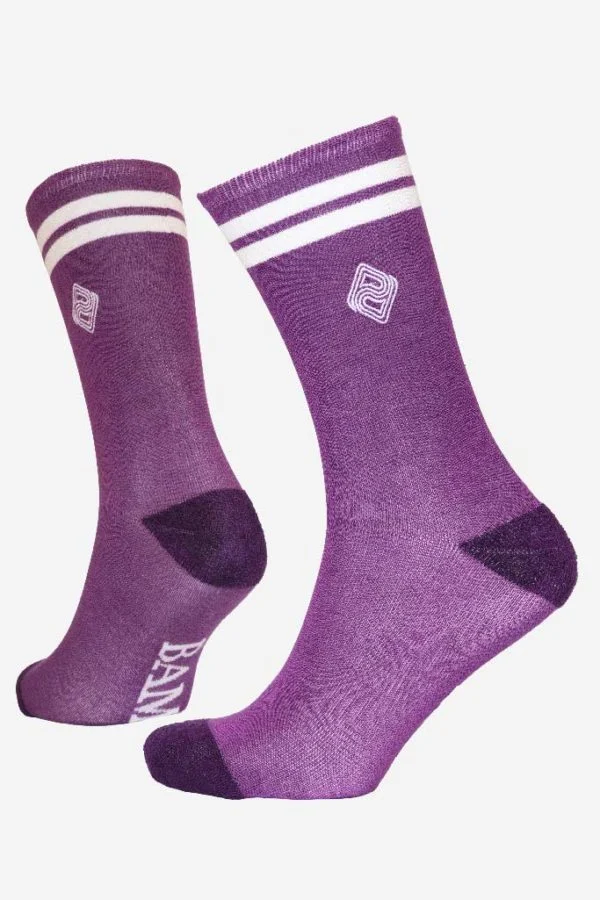Parallel Purple Sock Day: Raising awareness and support for D/deaf and disabled entrepreneurship in the UK

December 3 this year is the United Nations’ International Day of Persons With Disabilities (IDPWD), a crucial day to both raise awareness of the challenges that people with disabilities face, but also a day to celebrate the diversity of character, experience and abilities that so many people with disabilities possess.
Hearteningly, in recent times, more and more individuals with disabilities have begun to feature in mainstream television, film and culture, such as Rose Ayling-Ellis on Strictly Come Dancing, actress Millicent Simmonds (of A Quiet Place fame), Love Island’s Hugo Hammond, and social media fashion icons Hermon and Heroda Berhane. Despite this increasing move towards a more inclusive culture, however, there are still many aspects of society where there are considerable disparities, such as the accessibility of starting a business.
Entrepreneurship is one of the most challenging and intimidating experiences that anyone can face, both professionally and personally. Starting a business inherently involves a great deal of risk. There’s of course the financial risk of taking a loan from the bank or putting your life’s savings on the line, and risking losing it all or becoming indebted. But there’s also the risk to your reputation, your pride, and above all, your mental health.
Being a business owner means being entirely responsible for whether your business fails or succeeds, whether you’ll be able to pay the mortgage or rent next year or not, and, if you have employees, whether they’ll be able to pay their bills next year too. All of this comes with an immense weight of responsibility and consequent anxiety.
But starting your own business can also be one of the most rewarding endeavours that you can pursue. Entrepreneurship is an expression of a character’s independence, ingenuity and creativity. Though, as with all pursuits in life, for some people there are a greater number of obstacles to becoming business owners than there are for the average person.
In Q2 of this year, there were 4.4m disabled people in employment in the UK, an estimated increase of 300,000 from the same period one year prior, and an overall increase of 1.5m since earliest comparable definitions of ‘disability’ were used in 2013. Though this is a positive trend in relative terms, in absolute terms, the statistics leave something to be desired. The disability employment rate in Q2 of this year was 52.7%. This stands in stark contrast to an employment rate of 81.0% for non-disabled people – equalling an employment gap of 28.4%.
This is a complex and hugely multifactorial subject, but it is largely a story of vicious cycles. Those with disabilities (Education, Health and Care (EHC) plans or Special Education Needs (SEN)) on average attain lower grades than those without disabilities in schools in the UK. This is typically due to lack of resources for sufficient differentiated teaching strategies and dedicated time for disabled students, and formal assessment methods that may not be accessible for many disabled students. This lower attainment consequently leads to lower numbers of disabled students entering higher education. In 2018/19, for example, just 8.9% of pupils with an EHC plan and 20.6% of pupils with SEN support progressed to higher education by age 19, compared with 47.3% of non-disabled students.
Higher education is the primary means of acquiring specialised skills and entering a skilled career, and in doing so gaining experience of how businesses are administered – a familiarity that is crucial for an individual’s confidence in being able to start their own business. It therefore stands to reason that a group with limited accessibility to professional experience will be less inclined to start their own business.
Not only this, however, but disability is also strongly associated with poverty and financial hardship. Families of disabled children on average, face extra costs of £581 a month, meaning a reduced ability to provide extracurricular support or resources due to limited means. Furthermore, as an adult, life costs £583 more on average a month, due to care and support-related expenses, which significantly reduces an individual’s ability to save money to start a business.
Collectively, this creates an environment where entrepreneurship is simply less accessible to disabled people than the average person. From additional financial pressures that are associated with disabilities, and lack of specialised and accessible resources in state education that can facilitate success, to prejudices from employers regarding the perceived competence of disabled people in the workplace and the reduced confidence that comes from experience rejection or failure. Though these are conditions that are improving over time, there is still some way to go. Fortunately, however, there are charities and organisations that are working hard to hasten the pace of change.
As any business owner reading this knows, entrepreneurship can be one of the most fulfilling pursuits that a person can experience. And as a society, we should do our best to make experiences like that as accessible as possible for everyone, regardless of background or perceived disability.
Coinciding with IDPWD this year is Purple Sock Day, led by Parallel Lifestyle, an organisation that runs events dedicated for people with disabilities. Purple Sock Day aims to raise awareness of the challenges that D/deaf and disabled entrepreneurs in the UK face and raise funds to support them. To do this, they have partnered with BAM Bamboo Clothing, to produce and sell special, limited edition pairs of purple socks. 50% of the profits from the sale of these socks will, in collaboration with Hatch Enterprise, go towards funding schemes that facilitate D/deaf and disabled entrepreneurship.




